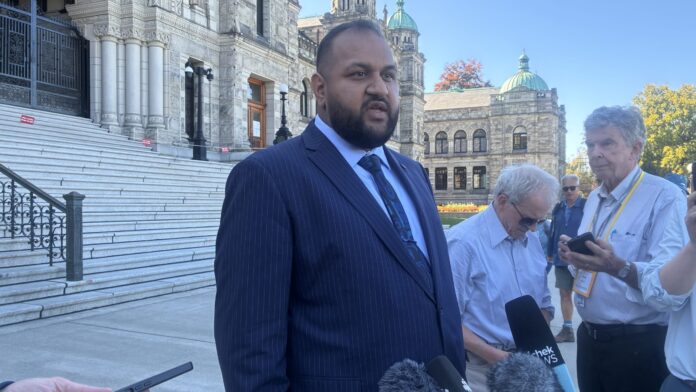The Union of B.C. Municipalities (UBCM) have welcomed the province’s decision to extend consultations on a controversial overhaul of the Heritage Conservation Act.
The UBCM called on the British Columbia government to press pause on changes to the act, saying local governments weren’t meaningfully consulted during the process.
The Heritage Conservation Act (HCA) was passed in 1977 to protect certain archaeological sites on Crown and private land, and last saw significant amendments in 1996. The Act governs archeological assessment and permitting at all cultural heritage sites in B.C.
The provincial heritage register currently includes more than 64,000 protected heritage sites, 90 per cent of which are Indigenous.
It’s illegal in B.C. to disturb archaeological sites without proper permits. The HCA requires that any construction work must stop if artefacts are discovered, to allow for an archaeological study and permitting.
That has led to lengthy and costly delays for construction in communities like Lytton, which was devastated by a wildfire in 2021.
The UBCM said local governments have been raising concerns for years about development costs and delays due to the Act, especially related to residential home construction and renovations.
Last week, UBCM outgoing president Trish Mandewo said the only engagement local governments offered from the province was a single three-hour webinar in August about the proposed changes.
“We want to be very clear, UBCM recognizes and supports the importance of archeological conservation, particularly as it relates to Indigenous values,” said Mandewo in a statement. “But while the Province took seriously its obligation to work with Indigenous groups in developing the legislation, engagement with local governments was largely disregarded.”
B.C.’s Forests Minister Ravi Parmar, who has been tasked with leading the HCA’s transformation, said that’s not true.
Parmar told reporters on Sept. 24 his ministry has held over 300 engagements in recent months with local governments, the business community and the industry sector.
However, Parmar said he has heard the concerns of local governments who gathered for the UBCM convention in Victoria last week, and the province is extending the consultations on the process until mid-November.
“The thing that I’ve heard loud and clear is the need for more engagement,” said Parmar.
Parmar said proposed changes to the Act would streamline the permitting process. As an example, he said approving a mining project under the Act can take as many as 10 years and multiple permits. The minister said he hopes to see a streamlined process where permits can be approved in just one year.
Parmar said he doesn’t expect the extension to delay the legislation, which is expected to be introduced as early as next spring.
A committee with representatives from the province and the First Nations Leadership council has been working on engaging stakeholders on the project since 2022.
“The door is wide open for anyone to provide input at this critical time, before the Request for Legislation, and then the legislation itself, is drafted,” said First Nations Summit Political Executive Robert Phillips in a statement. “We cannot allow fearmongering to derail a process that will deliver better protection, more transparency, and faster decisions for everyone.”
The province has said proposed changes would make permitting faster and easier and help communities rebuild quicker after disasters. They also aim to strengthen the role of First Nations in the management and protection of cultural heritage sites.
“The existing Heritage Conservation Act is not working,” Premier David Eby told delegates during his speech wrapping up the UBCM convention on Friday. “It is delaying badly needed growth in communities…and it’s also not working for people who are concerned that their priceless cultural heritage may be lost forever.”
“We need change, but we will not do it at the expense of local communities,” he promised.
An online survey is open until Nov. 14 to allow B.C. residents to provide feedback on the project.




